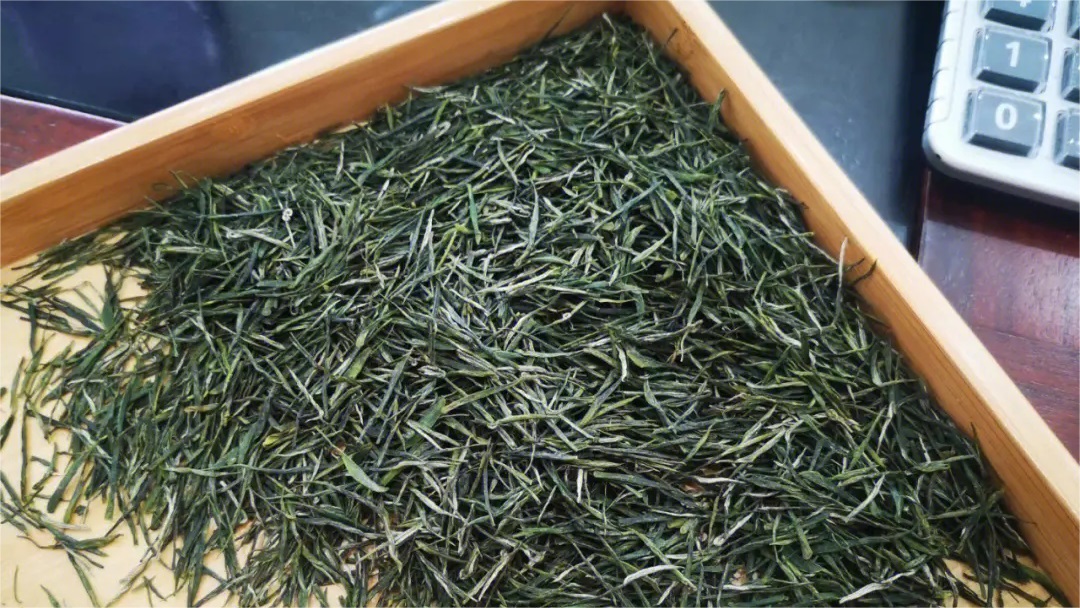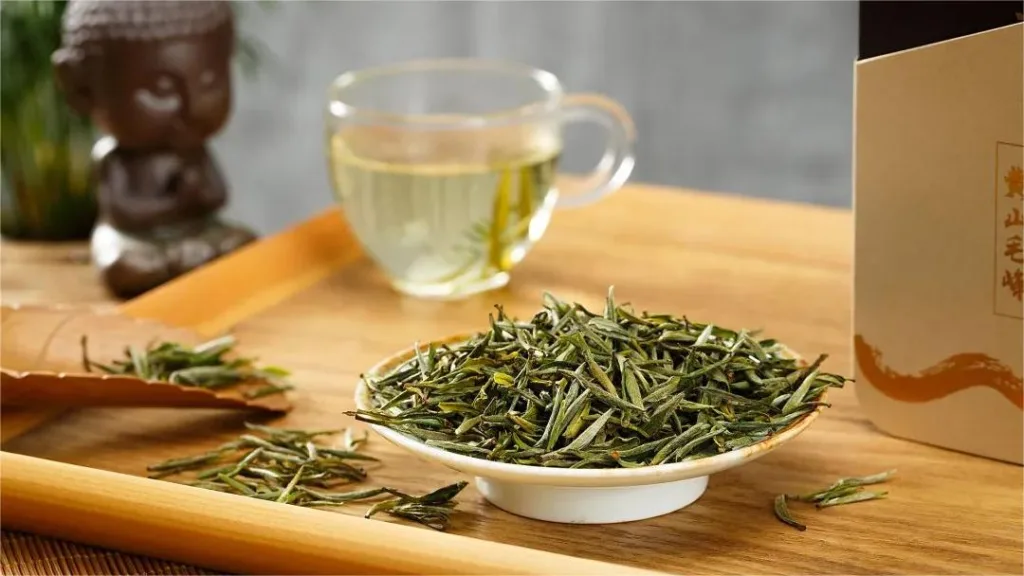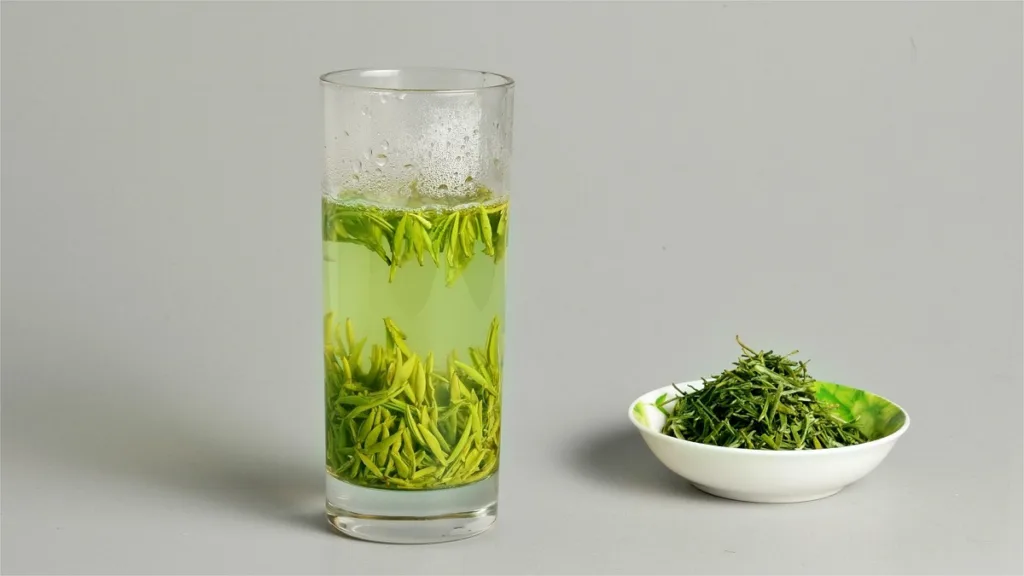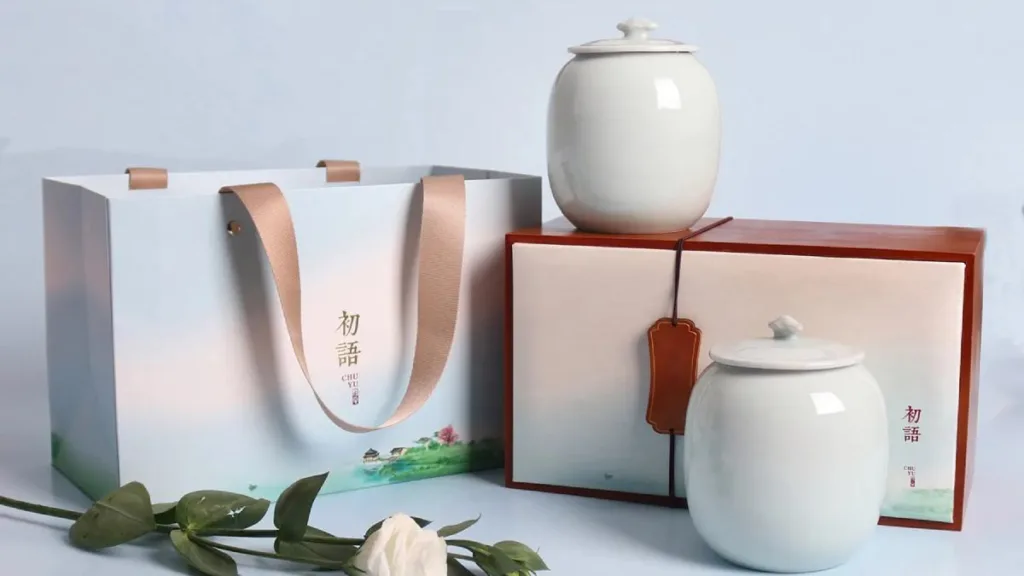Enshi Yulu, also known as Yulu Jade Dew (恩施玉露), is a distinctive tea from Enshi City, Hubei Province, China. Its name, “Yulu,” translates to “Jade Dew,” a name that perfectly encapsulates the elegance and allure of this exceptional green tea. Enshi Yulu is renowned for its appearance, flavor, and the centuries-old tradition that accompanies it.
Enshi Yulu tea leaves are known for their slender, needle-like shape, with a tight, round, and smooth appearance. The leaves are fine, straight, and deep green in color, resembling fresh jade. When brewed with hot water, the tea leaves unfurl gracefully in the cup, suspending at first and then settling at the bottom. The resulting liquor is a bright, tender green, much like jade, and it emits a refreshing aroma with a smooth and mellow taste. Enshi Yulu is a visual delight and a sensory pleasure.
Traditional Production
Enshi Yulu is a traditional Chinese steamed green tea made from freshly harvested leaves, typically consisting of one bud and one or two leaves with a vibrant green color. This tea-making method shares similarities with Japanese Gyokuro tea, which has been inspired by Chinese tea culture since the Tang Dynasty. Despite the influence, Enshi Yulu maintains its unique qualities, distinct from Gyokuro.
Historical Significance
The history of Enshi Yulu dates back to the Kangxi era of the Qing Dynasty. A tea merchant from Enshi, whose surname was Lan, developed the tea. His tea-roasting stove closely resembled modern-day Gyokuro tea roasters. The tea produced under his technique featured even, tight, round, straight, and vibrant green leaves with silver-white tips, resembling jade. It was initially known as “玉绿” or “Yulv.” Later, it was renamed “玉露” or “Yulu” due to its distinctive flavor and the resemblance to white jade.
In 1938, tea merchant Yang Runzhi, along with tea artisans like Yang Yimao, established a factory on Wufeng Mountain, taking over tea gardens and tea production equipment. They transformed Silver Needle, Melon Slice, and Chrysanthemum-shaped teas into the Enshi Yulu we know today. Thanks to the naturally superior quality of the tea leaves from Wufeng Mountain and the continuous improvement of tea-making techniques, Enshi Yulu gained recognition and popularity among tea enthusiasts worldwide.
Brewing Method
To fully appreciate the charm of Enshi Yulu, a specific brewing method is recommended:
Ingredients:
- Glass teacup or gaiwan
- 3-5g of Enshi Yulu tea leaves
- Water
- Tea strainer
Steps:
- Inspect the Tea: Place the dry tea leaves in a tea strainer and take a moment to admire their appearance and color.
- Warm the Vessel: Pour a small amount of 85°C hot water into the glass teacup. Swirl it clockwise, ensuring that the cup’s walls are fully soaked, and then pour the water out.
- Add the Tea Leaves: Place the tea leaves into the glass teacup (usually in a 1:50 tea-to-water ratio).
- Pour Water: Add water to the cup again (using a swirling motion), filling it about 70% full.
- Steep: Let the tea steep for about two minutes before enjoying it. You can refill the cup with water when it’s about one-third full.
Health Benefits
Enshi Yulu offers several health benefits:
- Radiation Protection: Enshi Yulu is known to help prevent and treat radiation damage. Tea polyphenols and their oxidation products have the ability to absorb radioactive substances such as strontium-90 and cobalt-60.
- Antiviral Properties: Enshi Yulu aids in inhibiting and resisting viral infections. Tea polyphenols have a strong astringent effect and can effectively inhibit and kill pathogens and viruses, making it useful for anti-inflammatory and anti-diarrheal purposes.
- Beauty and Skincare: Enshi Yulu is beneficial for skincare. Tea polyphenols are water-soluble compounds that can remove facial oil, tighten pores, disinfect, and combat skin aging, reducing the harmful effects of UV radiation on the skin.
- Mental Alertness: Enshi Yulu can enhance mental alertness. The caffeine in tea leaves can stimulate the central nervous system, promoting mental clarity and a calming effect. It can also help alleviate headaches.
- Diuretic and Fatigue Relief: Enshi Yulu has diuretic properties, as caffeine stimulates the kidneys, aiding in the rapid elimination of urine and toxins. This can help alleviate fatigue by eliminating excess lactic acid from the body.
- Antioxidant Benefits: Enshi Yulu contains potent antioxidants and vitamin C, which can neutralize free radicals in the body and help reduce oxidative stress. This, in turn, can improve overall health and vitality.
- High Selenium Levels: Enshi Yulu boasts high selenium levels, with 2 cups (30ml) offering antioxidants equivalent to 225ml of red wine, 7 cups of orange juice, 12 cups of beer, 750g of onions, or 600g of apples. These antioxidants combat oxidative stress, bolstering the immune system and supporting overall health.
Enshi Yulu, with its rich history and numerous health benefits, is more than just a tea; it’s a treasure from China that delights the senses and nourishes the body, offering a holistic experience for those who appreciate its unique qualities. Whether you’re savoring it for its cultural significance or its remarkable flavor, Enshi Yulu is a true gem among teas.




